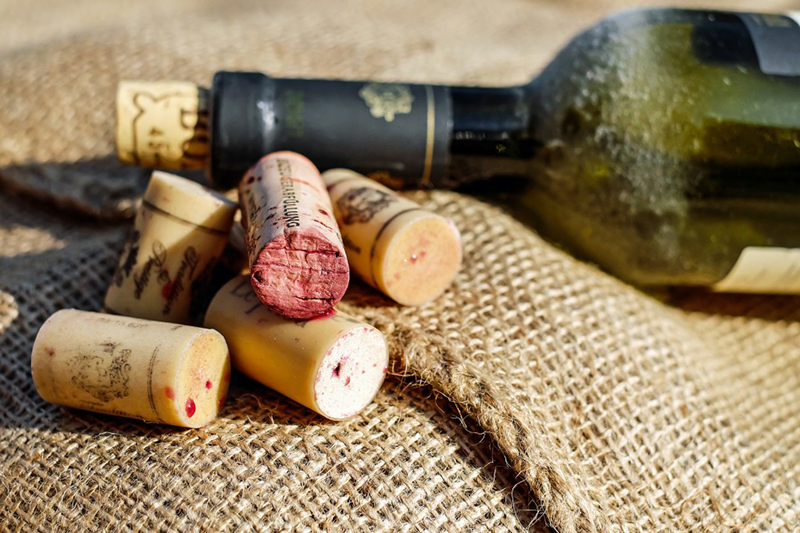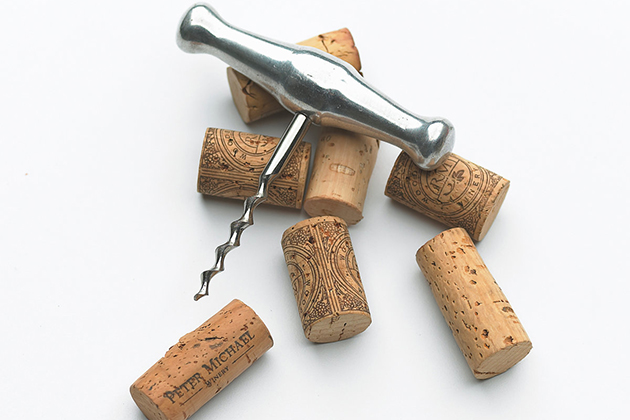No products in the cart.
Furniture Blog
4 Ways to Realize a Bottle of Wine is Bad & How to Deal with It
You are at a banquet and there is a familiar image of a wine bottle holders, keeping the bottle more luxurious. Many wine lovers were there with you. You are hungry for that glass of wine, but the minute you take a sip … you just know there is something wrong. Wine is fermented from pure grapes, aged in oak barrels for many years and is good for health if used properly. However, to avoid damaging the health of your used wine, you need to know how to identify damaged wine to avoid damaging your health.
Here are three ways to know if your wine is actually broken and what to do!
1. The cork
The cork of bottle is also considered an important detail that affects the taste and quality of the wine. So checking a bottle of wine first you should check whether the button is opened or still intact. The process of inspection shows that the cork has signs of cracking or not closed, the possibility of bottle damage is very high. When the wine’s cork is cracked or opened, the outside air enters the wine bottle, resulting in the wine being fermented and the wine easily degraded. Then check the smell of wine, if sour appearance, please say goodbye to this bottle immediately, avoiding it affects the health of you and the family members.
2. The wine looks “off”
You can say a lot about wine according to its color. Light-stemmed wines such as sauvignon blanc and pinot grigio must be clear with pale yellow, indicating fresh, lively and ready-to-drink wine. Chardonnay, or other white wines treated with oak, may have a slightly darker color than other varietals.
But if you notice your white wine has a dark yellow color or any brown color, it may be a sign that the wine is either old or oxidized. Although some white wines may be aging (i.e., purple), this can cause you to have a shortage of alcohol.
When you notice any brown or rust in red wine, this means that the wines are aged, or simply normal, or it has oxidized, since red wine varies in color from frosty ruby to violet. chemistry If you have ordered a fairly recent (in the past 5 to 10 years), you will not notice any big changes in color.
Also, if you see small pieces of cork floating in your wine – do not panic! This does not mean that alcohol is bad or “cork.” As the wine ages, their cork can dry and crumble when opened. Whenever possible, alcohol can be oxidized, always smelling and taking a small sip before making any final conclusions. You do not want to miss a great bottle because some cork nuts are easily disturbed and easily stressed.
3. The wine has an unpleasant smell
When you smell a glass of wine, breathe in the attractive scent of fruit, herbs, and spices. In older world wines, you can even spot notes of musk or earth – but if our nostrils are matched with the scent of a dragonfly or wet dog?
When you find a lively scent in wine, always rotate the cup to infuse a little oxygen into the liquid before tasting it. Sometimes these special smells will dissipate when exposed to air and alcohol will taste good. down a bad bottle. Different odors can mean different things.
A bottle of wine that has not been opened yet, you smell the warmth of the mildew, it is likely that the wine is so bad. This is because the bottleneck of the bottle is moldy and infested, and of course the alcohol inside is more or less affected.
For wine bottles that have been opened but not fully used, the closed cork should not be closed and stored in a poor environment, causing the wine to be exposed to oxygen in the air. When alcohol is exposed to oxygen in the air for a long time will turn into vinegar, cause sour wine and sour taste, not completely drunk.
In addition, if you are a wine connoisseur, you will know that each wine has a different taste, and just sniff it to find out that it is the exact taste of this name. or not. Just a little bit of preservation, the taste of wine can also be transformed into a “Vinegar” much worse.
4. The wine has tasted so bad
Sometimes the colors “off” and the lively scent, in fact, means your wine is missing. And by failing I mean that there is something chemically wrong with the bottle, not that you do not like the taste. So, if your wine tastes bad or “off”, do not hesitate to consult a wine seller or wine seller.
A simple statement like, “This wine tastes” off “to me, what do you think? It can go a long way toward ensuring an optimal experience. Nine times out of ten, a bad bottle will be replaced immediately. Unless, of course, you are dealing with a very old, expensive bottle. In this case, guidance from an expert can go a long way to accurately managing your expectations.
The bottom line is not that your wine merchant or wines want you to suffer through a broken bottle of wine – they want you to enjoy every last drop and come back for more bottles.





